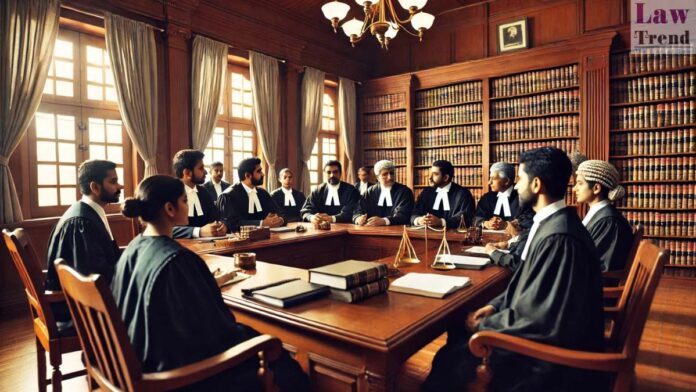The Delhi High Court has strongly urged the Bar Council of India (BCI) and the Bar Council of Delhi (BCD) to formulate a policy or scheme to ensure the families of deceased advocates do not suffer “abject penury.” This significant recommendation was made while a Division Bench dismissed an appeal for a Rs 10 lakh
To Read More Please Subscribe to VIP Membership for Unlimited Access to All the Articles, Download Available Copies of Judgments/Order, Acess to Central/State Bare Acts, Advertisement Free Content, Access to More than 4000 Legal Drafts( Readymade Editable Formats of Suits, Petitions, Writs, Legal Notices, Divorce Petitions, 138 Notices, Bail Applications etc.) in Hindi and English.




